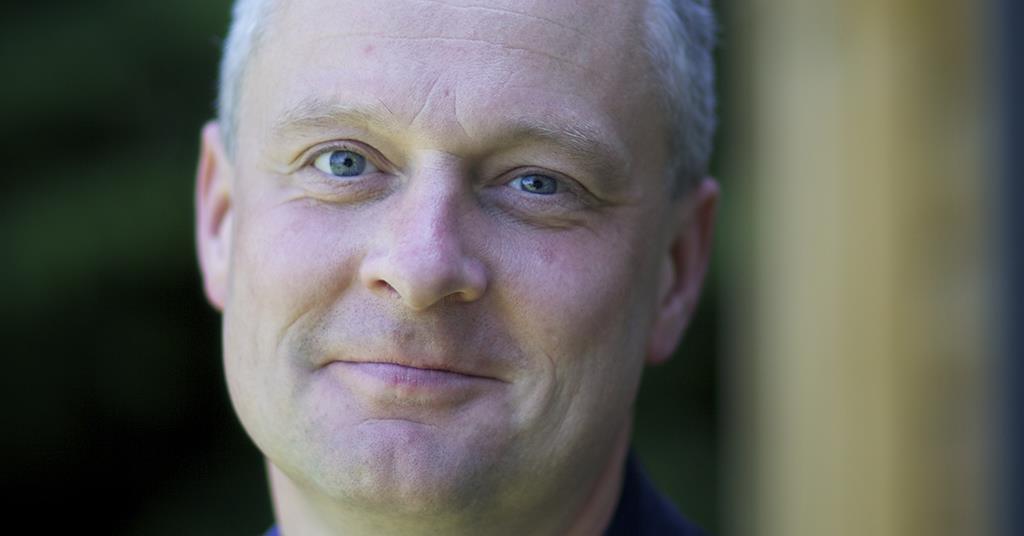Cowper’s Cut 344: The Eras Tour

Simon Stevens-era NHS England take over 10 Downing Street
The era of Simon Stevens is back. Sort of.

Lord Stevens of Birmingham’s former chief of staff Nin Pandit, who was highly influential in Downing Street during the pandemic and who subsequently ran Downing Street’s policy unit, has been appointed principal private secretary to PM Sir Keir Starmer.
Meanwhile, Stevens’ former director of communications James Lyons is moving on from his berth at TikTok (ask a young person) to become 10 Downing Street’s head of strategic communications. The Guardian’s Rowenna Mason has a decent brief profile of each here.
Former Mirror and Sunday Times journalist Lyons did not go out of his way to make friends during his time at NHS England, but was regarded as a highly effective number two and ‘bad cop’ to the genial communications director Simon Enright. Once Enright got the royal tap on the shoulder, Lyons’ promotion to the top comms role clearly seemed like a good idea.
Nin Pandit is widely regarded as a highly effective person, and will certainly help sharpen up a Labour government that has made an unhelpful number of unforced errors in its first stumbles.
Honest Bob has an idea about the NHS
I regret to inform readers that Honest Bob Jenrick, one of the two remaining leadership candidates for the Conservative And Unionist Party, has Had An Idea about the English NHS.

Honest Bob’s policy panacea is to sack NHS England’s chief executive Amanda Pritchard, telling Sunday Times’ deputy political editor Harry Yorke that “it’s particularly disappointing that Amanda Pritchard essentially denied the NHS has a problem with productivity in front of a select committee last year.
“[She] has presided over plummeting productivity and then denied there is a problem. Having spoken to many people in and around the NHS, I do query whether she is the best person Britain has to run the NHS. It’s nothing personal against her. I know she’s very professional. But I do think it’s time for someone new, who gets that NHS productivity has to improve.
“I believe strongly that we should be empowering our best leaders — at every level — in all our public services. As we’ve done with our school reforms over the last decade. But the flip side of that — which is as important — is that people must be held accountable for failure. And that starts at the very top.”
Mmmmmm. If I were Honest Bob, I’m not sure I’d be trying to plant any bombs on the basis of failure that starts at the very top. What’s sauce for the goose …
Longstanding readers know that I am very far from being a fan of Amanda Pritchard’s. I think that NHS England’s direction and leadership under her tenure have been wildly poor.
NHSE’s productivity denial, which Steve Black eloquently covered in his Health Service Journal ‘Mythbuster’ columns, has been almost as unhelpful as their heavily incentivising NHS financial lying.
NHS financial lying: bad


The NHSE leadership have, in football terms, quite comprehensively lost the dressing room.
And so I am certainly not about to start pretending that Ms Pritchard has been a good or effective leader: she has not.
Honest Bob’s mechanism for removing Ms Pritchard, however, is perhaps the ultimate in ‘long gaming’. The next general election is in just under five years’ time, and given that the last Conservative Home poll of Tory members put Kemi Badenoch ahead of Honest Bob, the issue may prove academic.
Amandexit? No, probably not
It is a telling reflection of the absence of any contemporary Conservative And Unionist Party philosophy or thought about public service reform that Honest Bob’s one bullet was ‘sack the boss!’: a solution that may occasionally be a necessary if not sufficient condition for real and sustainable improvement.
One consequence of this may be to winkle a statement of support for the current NHSE boss out of Wes Streeting (although at the time of writing, nothing to that effect has appeared on his Kiss account).
Another slightly more insidious one may be temporarily to strengthen her position in post.

Streeting has already allowed the health media to know that he sees the inevitable NHS crisis this winter as 100% blameable on the Tories. But he also allowed us to overhear that next winter (25-26) will be squarely on the service and its leadership. As one CEO involved told HSJ, “thereafter it’s our fault”.
My hypothesis pre-election was that Ms Pritchard’s likely fate would be to get sacked in the spring of 2025, as a blame-hound for the inevitably appalling nature of the arriving winter crisis.
However, it is clear that for now, Mr Streeting is perfectly happy having a pliant and weak NHSE chief executive asking him how high she should jump, and being helpfully free of any actual ideas.
It would also be suboptimal to have to start seeking a new NHSE boss until the Darzi ten-year plan has been delivered.
Combine all of this with Honest Bob’s intervention, and it now looks more probable that Ms Pritchard may be able to stagger on to spring 2026. By this time, she will have been in the job for almost five years: a respectable stint if you don’t look for the achievements. She might then jump, ahead of being pushed.
Can you monetise a brass neck? NHSE FD Julian Kelly’s trying
One must have a heart of stone not to laugh at the latest output from NHS England’s finance director Julian Kelly.

After issuing this corker of a financial statement with the last NHSE bored papers, Mr Kelly told the latest NHSE bored meeting that “boards … really have to look at your workforce as you go through September, October [and] November, because that is actually where the growth was much larger last year than people were planning for.
“It’s great — keep your substantive staff, that is the way we want it — but you’ve got to take out the temporary workforce costs which were otherwise plugging the gaps, and that requires some management discipline.”
Mr Kelly told the NHSE bored that work with systems off their financial plans found some “basic controls [were] not working effectively enough”, including a lack of grip on “decision making about jobs and vacancies [and] approval of business cases”.

Leaks to HSJ this week imply that the Elective Recovery Fund is being threatened with wholly unsurprising Treasury political pre-Budget noise-making. Sorry: I mean threatened with being cut.
Senior NHS figures who are definitely, 100% not called Chris Hopson told HSJ that the Treasury has got its own shroud out and is waving it around with aplomb. Possibly with multiple plombs: I wasn’t there. But the allegation being made is that the government is seriously considering “pausing or capping” the ERF for this financial year.
This thesis would have made an epic thread on Kiss (formerly Twitter), but it’s very likely to be complete bollocks. Our beloved amigos the Treasury Munchkins may be silly about financial rules, but they are not actually stupid. This is just a very public, [coughs] ‘strategic’ [/coughs] attempt at negotiating with the Treasury.
Who will hopefully treat it with the reverence it deserves, and ignore it completely.
Everybody knows that you need to front up with at least a five-year plan to negotiate successfully with the Treasury, and adjusted for inflation, it’s probably at least a thirteen-year plan these days.
The Boris Johnson Fanzine is at it again

I know that you may find this difficult to believe, but the erstwhile newspaper that is now the Boris Johnson Fanzine has printed a load of unmitigated shit about the NHS. This time, it’s an article that entertains the notion that private hospitals will rescue the NHS.
I laughed until I stopped. The BJF has been a joke of a publication for more years than I can remember. Its long-fabled sports coverage was the last shred of credibility to go.
But even by BJF standards, this rewrite of an Independent Healthcare Providers Network briefing is a particularly egregious piece of shit. As I regularly post in the concluding R&RR section, the best-informed observer of the private sector Laing Buisson are wholly and consistently clear that private providers don’t have further spare capacity to make meaningful contributions to cutting NHS waiting lists.

The Private Health Information Network also find this to be true.
The private healthcare sector is very busy, and has scant spare capacity. This has been so for some years, and was so pre-pandemic.
This is worryingly reminiscent of the sector’s intermittent claims that it could solve past NHS winter cruises by offering its spare capacity: when that spare capacity was sought, it turned out not to exist in The Real World.

If the BJF’s health specialist Laura Donnelly had read the Sunday Times business feature with UK’s biggest private provider group Spire Healthcare’s chief executive Justin Ash, in which he clearly stated that this ‘saviour’ hypothesis was nonsense, then it didn’t show.
Ash told the ST, “nine of our hospitals are more than 80 per cent full. A lot of them are very busy. Solving a national problem like the pressure on the NHS requires a plan and it requires time. You can’t just flick a switch … You are talking years.” He further added that Spire were not lobbying for more NHS work “because we’re very busy”.
Waiting lists rise
The latest RTT data for August 2024 shows a further rise in the waiting list for hospital treatment. The RTT list stood at 7.64 million: down from the peak of 7.77 million in 2023, but higher than earlier in this summer and spring.
It now looks virtually certain that the plans to eliminate 15-month waits by the September datapoint will have been missed, just as all the previous elimination targets have been missed.
Meanwhile, as HSJ reports, emergency performance is dipping as we head into winter.

Dr Rob Findlay’s excellent analysis for HSJ has pretty much all you need to know.
Recommended and required reading
The Economist has this decent piece on NHS productivity.
Productivity is quite the week’s theme: the impressive Sam Freedman’s latest Substack examines the reasons behind the problems in general practice.
Hilary Cass rightly tells The Times that the BMA had no evidence whatsoever to back its former stance seeking to reject and rebut her review of NHS gender dysphoria services.
Financial Times long read on the costs of residential and social care.
The FT again, on the Budget’s potential changes to pensions.
Sadly, this corker looks likely to be Julian Patterson’s last HSJ column. They have been wonderful.

Bloody hell: I wrote this ten years ago. Not too much of substance has really changed since.











